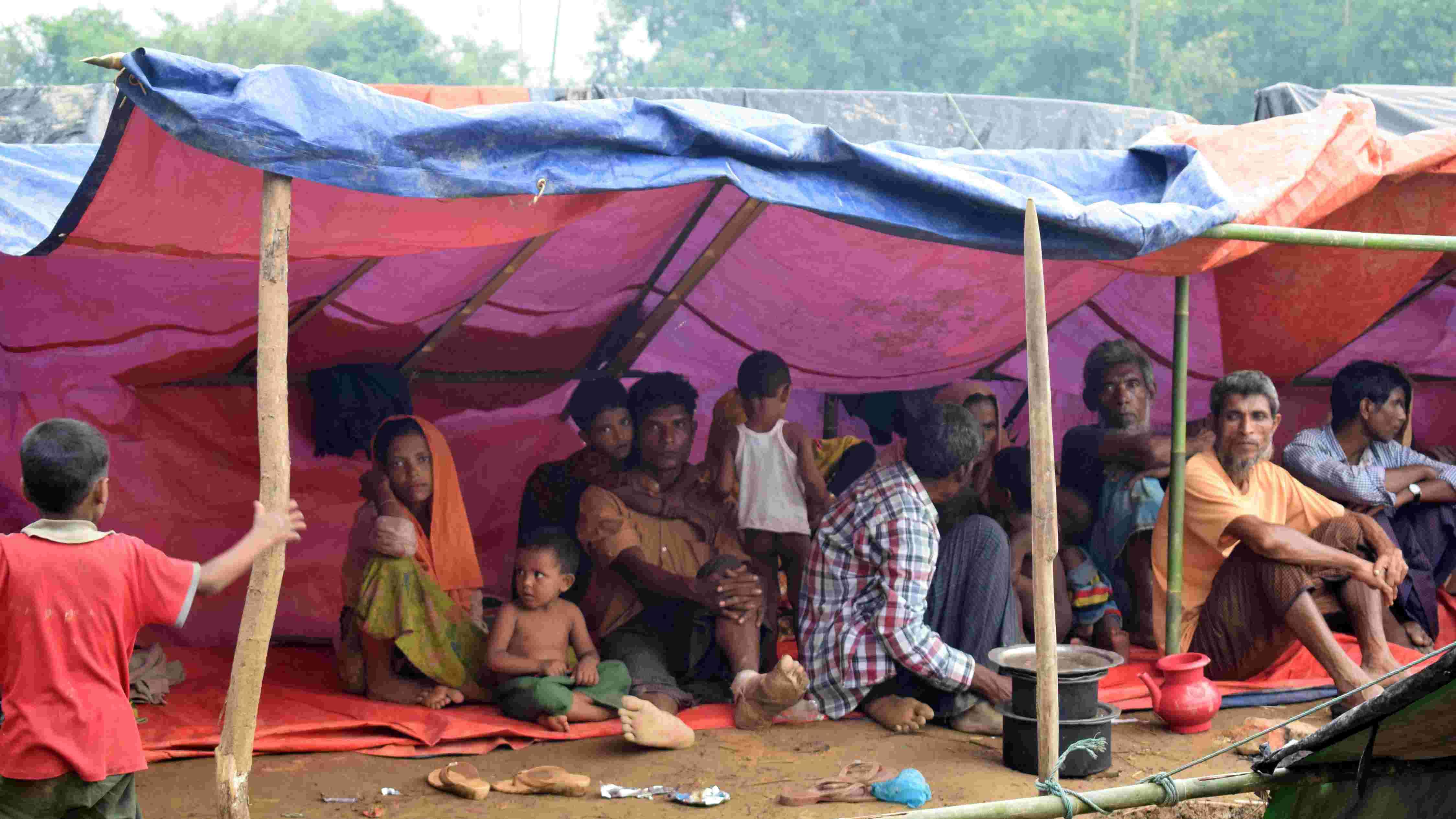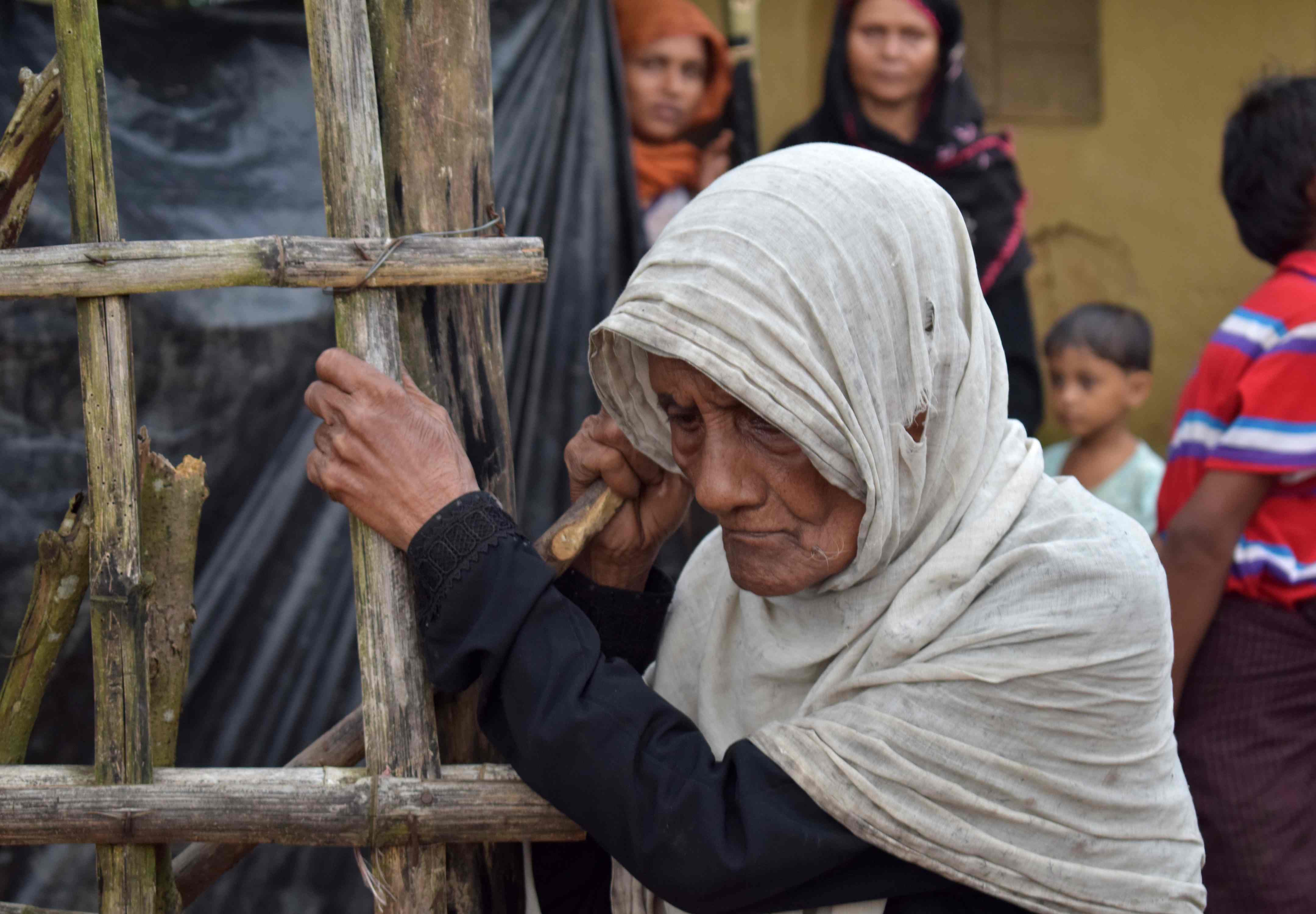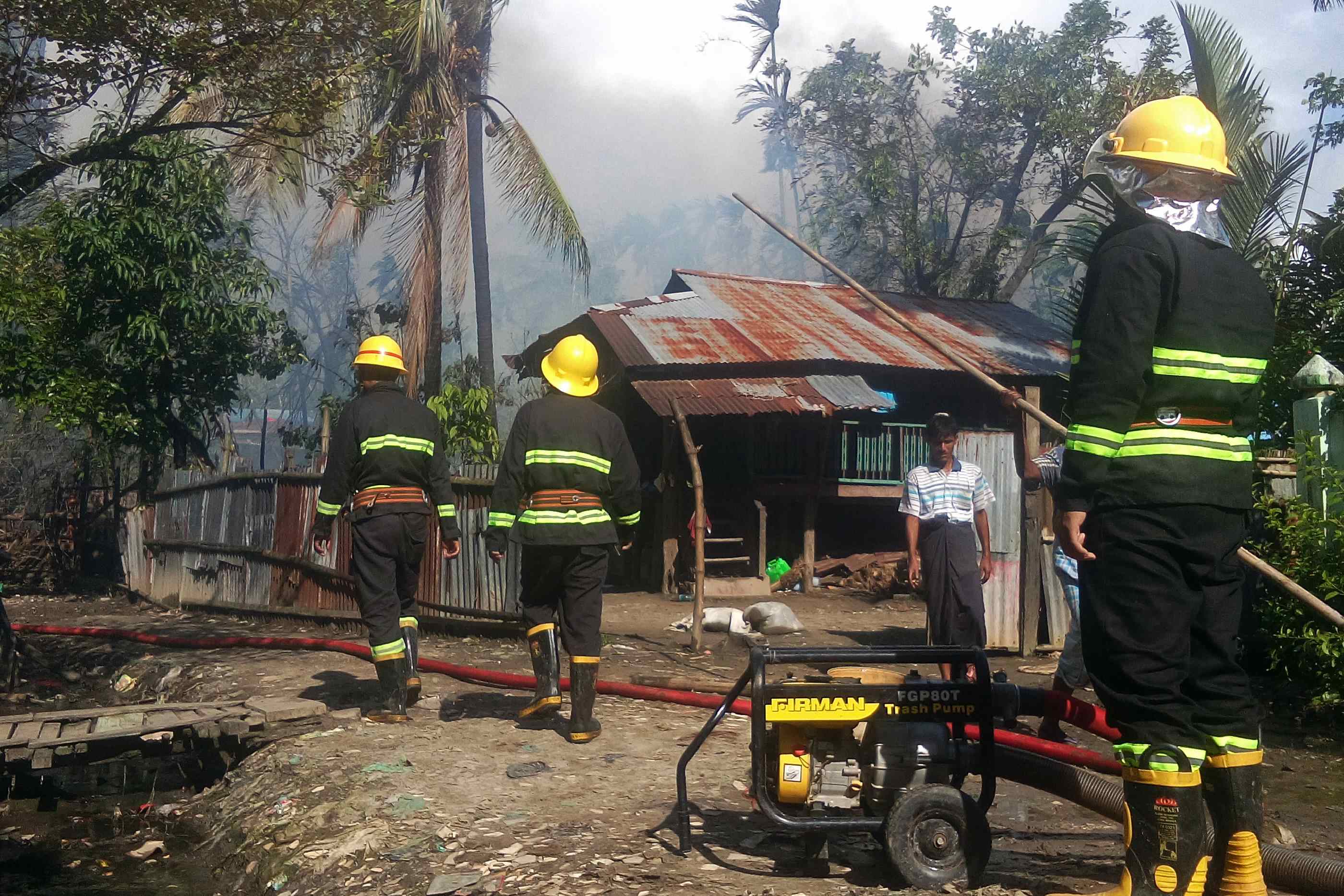
World
16:14, 04-Sep-2017
Rohingya crisis: Is media freedom at risk as BBC pulls out over ‘censorship’
CGTN

In what many international observers are calling the latest blow to struggling press freedoms in Myanmar, insiders reported that a popular television channel might be censoring coverage of the ongoing crisis at the Rakhine State, causing a clash with one of its partners, BBC Burmese.
The BBC's Myanmar language service on Monday said it was pulling out from a broadcasting deal with MNTV citing "censorship." The announcement is a remarkable turnaround for a news organization that famously kept Myanmar's de facto leader Aung San Suu Kyi up to date during her long years of house arrest under junta rule.
Since April 2014, BBC Burmese broadcast a news programme on MNTV every day with 3.7 million daily viewers.

An 80-year-old Rohingya woman stands to rest at Kutupalong refugee camp in Ukhiya, Bangladesh, on September 3, 2017. / AFP Photo
An 80-year-old Rohingya woman stands to rest at Kutupalong refugee camp in Ukhiya, Bangladesh, on September 3, 2017. / AFP Photo
On Monday, the BBC said it was ending the deal after MNTV censored or withdrew multiple programs since March this year.
"The BBC cannot accept interference or censorship of BBC programs by joint-venture TV broadcasters as that violates the trust between the BBC and its audience," BBC Burmese said in a statement put out on its website.
The BBC statement did not detail what content was censored and MNTV did not respond to requests for comment.
But an official at the local channel said they objected to the BBC's use of the word "Rohingya" in their reports.
"That's why we cannot broadcast their service," the employee said, asking not to be named.
The Rohingya are a stateless Muslim minority in Myanmar's northwestern Rakhine State, who face severe state-sanctioned persecution and have fled in droves in recent years.
Most international media call them Rohingya because the community has long self-identified that way.
But Myanmar's government - and most local media - call them Bengalis, portraying them as illegal immigrants from Bangladesh despite many living in the country for generations.
Hopes had been high that the new government of democracy icon Suu Kyi would usher in an era of free speech when they took power last year after half a century of military rule.

This picture taken on August 27, 2017 shows firefighters attempting to extinguish the blaze from houses burnt by Rohingya militants at the Maungdaw township in Myanmar's Rakhine State. / AFP Photo
This picture taken on August 27, 2017 shows firefighters attempting to extinguish the blaze from houses burnt by Rohingya militants at the Maungdaw township in Myanmar's Rakhine State. / AFP Photo
Suu Kyi was confined for years to a lakeside Yangon house under the junta but used to listen to BBC World Service and its Myanmar language offshoot on her radio.
Yet since coming to power in landslide elections, her civilian-led government has frequently clashed with the media over their coverage.
Defamation prosecutions have also soared, increasingly targeting social media satirists, activists and journalists.
A major bone of contention with foreign media is coverage of Rakhine State, which has been under an army crackdown since a small group of Rohingya militants attacked police border posts last October.
Tens of thousands of Rohingya have fled into Bangladesh while smaller numbers of Buddhist refugees have headed in the opposite direction.
The UN believes the military's response to the militant attacks in Rakhine may amount to ethnic cleansing of the Rohingya.
Suu Kyi's government have denied reports of atrocities, refusing visas to UN officials charged with investigating the allegations.
They have frequently condemned international media coverage and blocked press access to much the war-torn region.
Source(s): AFP

SITEMAP
Copyright © 2018 CGTN. Beijing ICP prepared NO.16065310-3
Copyright © 2018 CGTN. Beijing ICP prepared NO.16065310-3